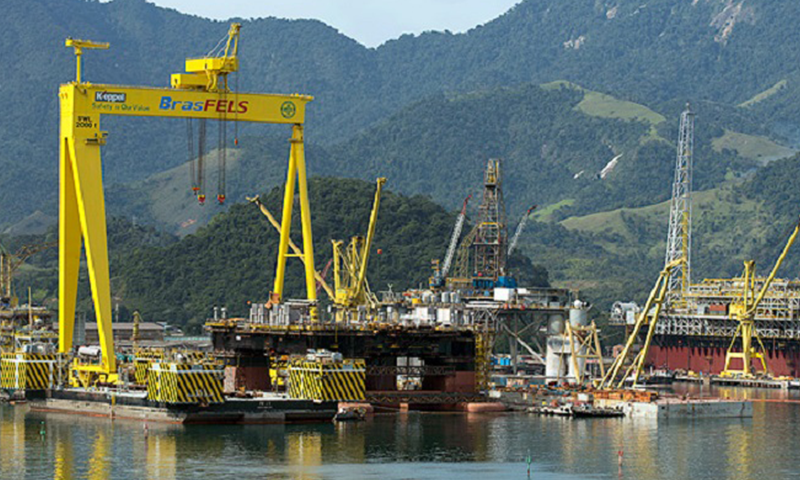
Sete Brasil was created in 2010 to manage the construction of 28 drilling units in Brazilian shipyards to fulfill Petrobras contracts to drill its pre-salt plays, at a time when Petrobras unrealistically planned to be the sole pre-salt operator. However, after the corruption scandals denounced by operation Car Wash, which led to the cancellation of the contracts, Sete Brasil faced financial difficulties leading it to file for administration, while leaving a trail of debts and unemployment at a number of local shipyards, some of which were newly constructed yards built for purpose.
Petrobras will now keep only four of the 28 drillers that were originally ordered from Sete Brasil, a company created under the government of former president Luiz Inacio Lula da Silva – who is currently serving a jail sentence – to build and operate drillships and rigs specifically designed and outfitted for exploring the deepwater pre-salt. The project was tarnished since its inception, as the plan involved the payment of fees by shipyard representatives to Petrobras executives, politicians and to a political party fund, in order to secure the contracts, according to former Sete Brasil directors, and Federal Police investigations. Sete Brasil was envisioned as the promise of the resumption of the maritime construction sector in Brazil, but ended up being one of the reasons of its downfall.
The names of the units that will go on sale have not been officially announced, but industry sources believe that they will be the NS Arpoador and NS Guarapari drillships, under construction in the Jurong Aracruz Shipyard, in Aracruz, in the state of Espirito Santo, part of Singapore’s SembCorp Marine (SCM) group and the SS Urca and SS Frade semi-submersibles, under construction at the Brasfels shipyard, in Angra dos Reis, Rio de Janeiro, owned by Keppel FELS Brasil, a subsidiary of Keppel Offshore & Marine, also from Singapore.
This makes sense as these four are in a more advanced stage of construction. The announcement of the bid is part of the judicial recovery procedure of the company and the receipt of the proposals ends in late February, that is, 30 days after the announcement.
Sete Brasil shareholders initiated an arbitration against Petrobras in early 2017, alleging losses that reached R$7 billion (US$1,90 billion) due to the withdrawal of Petrobras from the project. As Sete Brasil delayed the delivery of the equipment and with the fall in oil prices in the international market, Petrobras tried to renegotiate the charter contracts, a move which was rejected by Sete Brasil, generating a deadlock between the companies. The Sete Brasil recovery plan was approved at the beginning of November 2017 and included the amount to be paid for the four drillers, which was around US$1.25 billion, and if the proposals did not reach this minimum value, the transaction could only be realized if approved by the creditors. There were 22 creditors in total, 12 shareholders, five banks and five shipyards involved in the original Sete Brasil project.
If you like what we do then let us know by becoming a patron through Patreon, for as little or as much as you would like!
Hit the button below!
Check out our other current stories!



